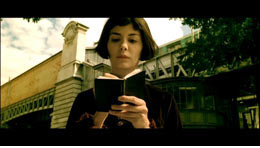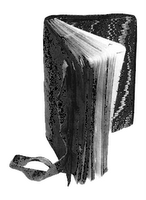 |
November 28 is the birthday of poet and artist William Blake, born in London in 1757. He was four years old when he had a vision that God was at his window. A few years later, he went for a walk and saw a tree filled with angels, their wings shining. He had other visions, too: he saw the prophet Ezekiel sitting under a tree, and angels walking with farmers making hay.
While some aspects of his behavior and beliefs might be considered eccentric or even insane by conventional standards, it's better to approach the question of his mental state with some sensitivity and historical context.
During Blake's time (1757-1827), the understanding and classification of mental health were different from contemporary perspectives. There is no definitive evidence to suggest that Blake was clinically insane. However, he did experience visions and claimed to have mystical experiences, which heavily influenced his artistic and poetic creations. Blake's unique worldview and his incorporation of spiritual and visionary elements in his works are more often seen as products of his unconventional thinking and artistic genius rather than indicators of mental illness.
When Blake was 10 his parents sent him to drawing school, and at the age of 14, he was apprenticed to an engraver. After seven years, he went into business for himself, and a few years later he privately printed his first book, Poetical Sketches (1783 which was a total flop. The book wasn't even mentioned in the index of London's Monthly Review, a list of every book published that month.
Not long after that, Blake's beloved brother, Robert, died at the age of 24. Blake spent two sleepless weeks at his deathbed, and when he died, Blake claimed that he saw his brother's spirit rise through the ceiling, clapping its hands with joy. From then on, Blake had regular conversations with his dead brother.
A year later, Robert appeared to William in a vision and taught him a method called "illuminated printing," which combined text and painting into one. Now known as relief etching, it was a huge breakthrough in printing. Blake printed his own Songs of Innocence (1789), Songs of Experience (1794), The Marriage of Heaven and Hell (1790), and The Book of Los (1795).
Blake died at the age of 69. He spent the day of his death working on a series of engravings of Dante's Divine Comedy. That evening, he drew a portrait of his wife, and then told her it was his time. A friend of Blake's who was there at his deathbed wrote: "He died on Sunday night at 6 o'clock in a most glorious manner. [...] Just before he died, His Countenance became fair. His eyes Brighten'd and He burst out into Singing of the things he saw in Heaven."
At the time of his death, Blake was an obscure figure, best remembered for his engravings of other peoples' work, or maybe his one famous poem, "The Tyger." Among those who knew more about his life's work, the consensus was that Blake was insane. Songs of Innocence and of Experience, which he had engraved and painted by hand, had sold fewer than 20 copies in 30 years.
It wasn't until more than 30 years after his death that a husband-and-wife team, Alexander and Anne Gilchrist, published a two-volume biography of Blake that firmly established him as a brilliant and important artist.
Throughout his career, he continued to see visions — in addition to communing with the spirits of relatives and friends, he claimed to be visited by the spirits of many great historical figures, including Alexander the Great, Voltaire, Socrates, Milton, and Mohammed. He talked with them and drew their portraits. He was also visited by angels and once by the ghost of a flea, whose portrait he drew.
Blake wrote:
"I assert for My Self that I do not behold the outward Creation [...] 'What,' it will be Question'd, 'When the Sun rises, do you not see a round disk of fire somewhat like a Guinea?' O no, no, I see an Innumerable company of the Heavenly host."
"First the notion that man has a body distinct from his soul is to be expunged: this I shall do by printing in the infernal method by corrosives, which in Hell are salutary and medicinal, melting apparent surfaces away and displaying the infinite which was hid."
"Without minute neatness of execution, the sublime cannot exist! Grandeur of ideas is founded on the precision of ideas."
Follow this blog for all things poetry.
To see our past prompts and more than 300 issues,
visit our website at poetsonline.org
from Poets Online - the blog https://ift.tt/keuXzqd











